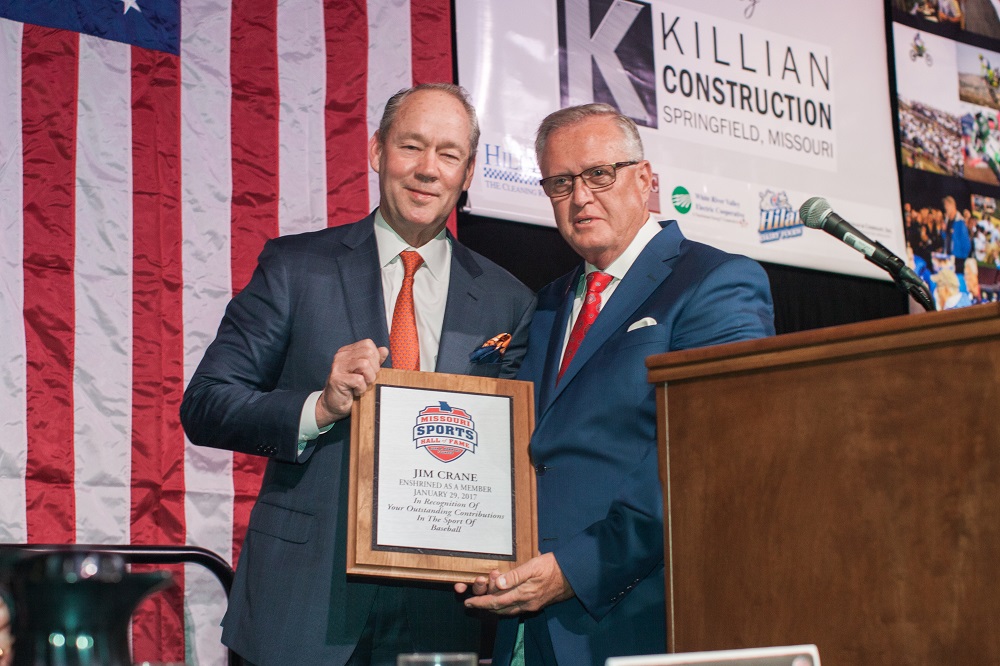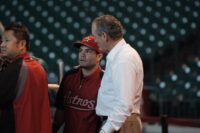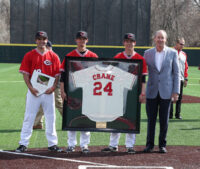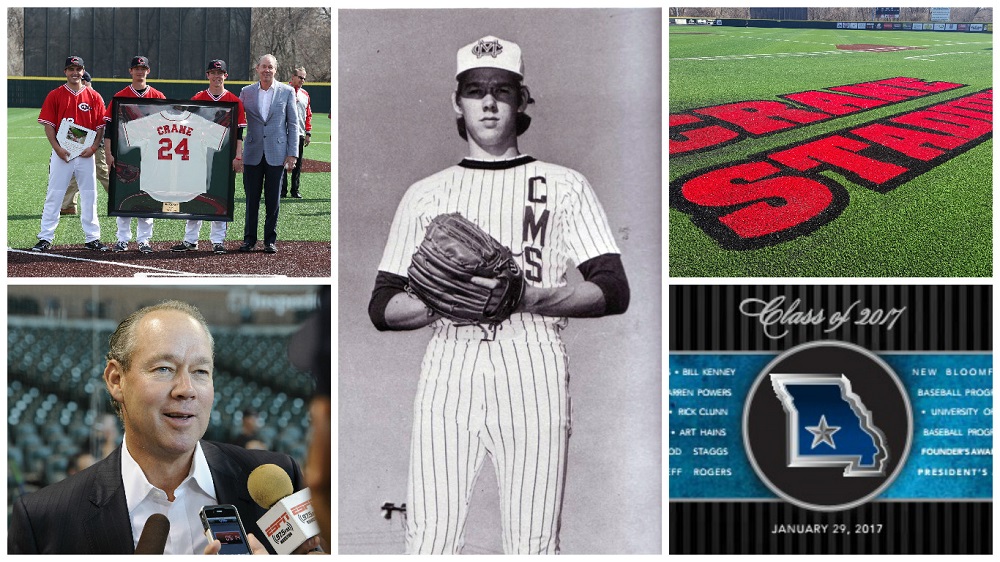Inductees
Jim Crane

Born: January 17, 1954
In the summer of 1974, decades before he came to own a big-league baseball team, Jim Crane took a union job on the loading docks of a dry goods company near St. Louis.
In essence, that’s truly where his life journey began. You see, Crane’s father had recently passed away, the family needed money and, despite a solid freshman season pitching for the University of Central Missouri, Crane had little interest in returning to campus.
That was, until his college coach hopped on I-70 and drove from Warrensburg to set him straight. “Bob Tompkins kept me in line,” Crane recalled. “I was not a great student, but he helped get me through school.”
What a turnaround. Crane starred for UCM Baseball and then in the business world, where his fortunes eventually led to his purchase in 2011 of the Houston Astros. It’s a career certainly deserving of the Missouri Sports Hall of Fame, which is proud to induct Crane with the Class of 2017.
A 1972 graduate of Lutheran North High School in St. Louis, Crane has never forgotten where he came from.
In 1998, Crane was the primary underwriter of a $1.2 million renovation of the Mules’ baseball field, now named the James R. Crane/Robert N. Tompkins Field. In 2015, another donation led to installation of a synthetic turf playing surface, and he has continued to fund annual enrichment scholarships to honor students at UCM.
Crane pitched for the Mules from 1973 to 1976, compiling a 21-8 record with a 2.42 earned run average. He still ranks first in career complete games (23), shutouts (7) and is third all-time in career strikeouts (215). He also holds the program’s single-game strikeout record (18) and, in 1997, was inducted into the Central Missouri Athletic Hall of Fame.
Along the way, in 2004, he donated $1 million to Lutheran North’s athletic facilities.
All of which was the result of Tompkins – and Crane’s mother, Joyce – urging for his return to Central Missouri. As a freshman, he was a key piece of the Mules’ team that reached the 1974 NCAA Division II World Series, with Crane striking out 18 in the opening game – including the first 11 batters.
“My mom was tough,” Crane said. “She told me I had to stay in school.”
Baseball has long been part of Crane’s life. He often rode his bike from his parents’ home in Dellwood to the local park to play Little League baseball and, as a teenager, Crane parked cars in a garage across from Busch Stadium. Without question, the St. Louis Cardinals of the 1960s became his boyhood team.
Decades later, in 2011, he became the owner of the Astros.
A tremendous business career made it all possible. In the 1980s, Crane founded Houston-based Eagle USA Airfreight, an air freight logistics business which grew to 10,000 employees and more than 400 facilities in 139 countries. It reached No. 599 on the Fortune 1000 list and eventually led Crane to form the Crane Capital Group, Inc., of which he was chairman and CEO.
“I hired a lot of athletes because, while they weren’t straight-A students, they knew how to work as a team and work hard,” said Crane, the keynote speaker of the 2014 NCAA Convention and who was honored as a member of the NCAA 40th Anniversary Tribute Team for Division II athletes.
Meanwhile, Crane has led a revival of Astros baseball. Thanks to a rebuilt farm system, the big-league club enjoyed 86- and 84-win seasons in 2015 and 2016, respectively. The Astros also have purchased two minor league affiliates, Double-A Corpus Christi and Class A Fayetteville, N.C., plus will soon open a new spring training facility in Florida.
“We had to fix the bottom first,” Crane said, “but we haven’t won anything yet.”
Under Crane’s leadership, the Astros Foundation has grown from $50,000 to $12 million. The Astros also established the Community Leaders Program in Houston to provide newly renovated baseball and softball fields to engage and develop youth through sports.
The Astros have also supported several of Major League Baseball’s diversity initiatives, including the 2015 Civil Rights Game. The Civil Rights Game included ancillary activities developed by MLB to pay tribute to those who fought for equal rights for all Americans both on and off the field.
“When I was young, my mom and dad taught me that you have to work hard. And I learned how to treat people,” Crane said. “I’ve been fortunate to have had success in business and the discipline it took.”




